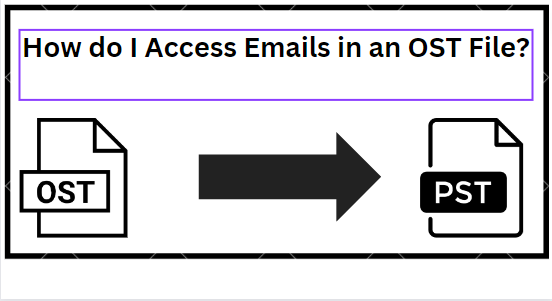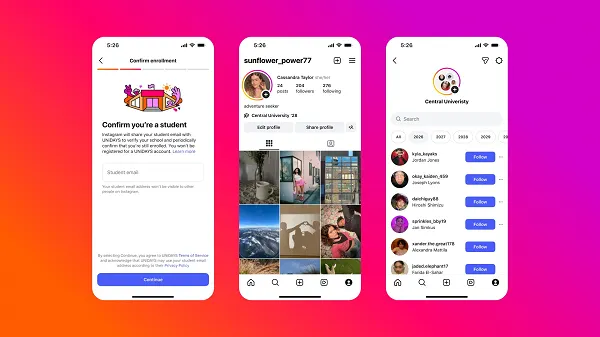How to enter new markets: Three ways for agencies to approach entering new markets
If you're interested in exploring new markets for your company to enter, then check out the three steps Ann Smarty recommends you follow for success. The post How to enter new markets: Three ways for agencies to approach entering...

If you're interested in exploring new markets for your company to enter, then check out the three steps Ann Smarty recommends you follow for success.
With economies around the world in a state of disarray, agencies are forced to look for more ways to keep their income consistent.
Expanding your services and entering new markets is a good way to keep your business afloat amidst narrowing bottom lines.
Here are three ways for agencies to start offering new services and enter new markets:
1. Conduct market analysis to find opportunities in available data
Prior to making a leap, determine if there is really a demand for something you want to invest in or launch. You can gain customer insights and discover the size of different marketers.
Start with consumer surveys; they are exactly what they sound like – you ask a question and get to hear back from your audience. This is a great way to decide which features your audience likes best or how much they would be willing to pay for a particular service or feature of your service. From there, you can also ask them which other services they are investing in to grow their businesses, what they would like to start doing the following year and what their biggest struggles are.
All of this information will allow you to review and expand your services to something that is likely to be in demand.
Keyword Research helps identify search interests in different markets
Using keyword research is a good idea to verify the demand for a particular service you are considering adding. Run a few searches to identify search queries other companies are using to generate leads for a related service and then use tools like Ahrefs or SEMrush to evaluate the monthly search volume and keyword difficulty for each.
A search volume that is higher than 1000 is a good indicator of a search query being in high demand. Keyword difficulty allows you to see how strong your organic competitors are going to be.
In SEMrush, you are recommended to select keywords with keyword difficulty of 0-14 (these are the easiest to rank for). SEMrush uses a “variety” of factors when calculating their metric, but factors with the strongest influence on this metric are linked to your backlinks (like the number of backlinks and domain authority of ranking pages).
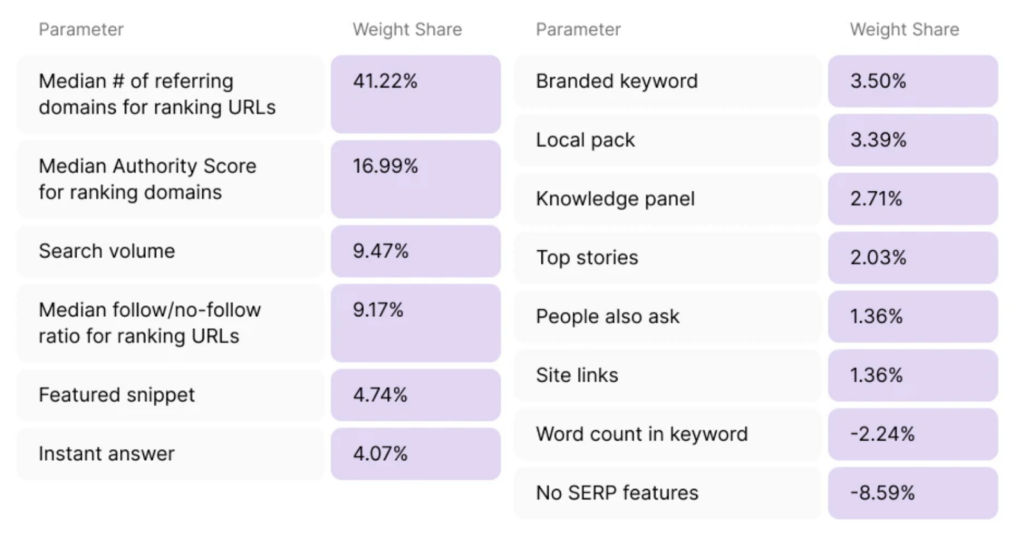
Ahrefs recommends choosing queries with keyword difficulty of no more than 10.
To calculate their metric, Ahrefs relies on the number of referring domains pointing at the current top-ranking pages. Ahrefs claims that no other (potentially more complicated) method is needed because they have found a strong correlation between the number of external links to a page and its rankings.
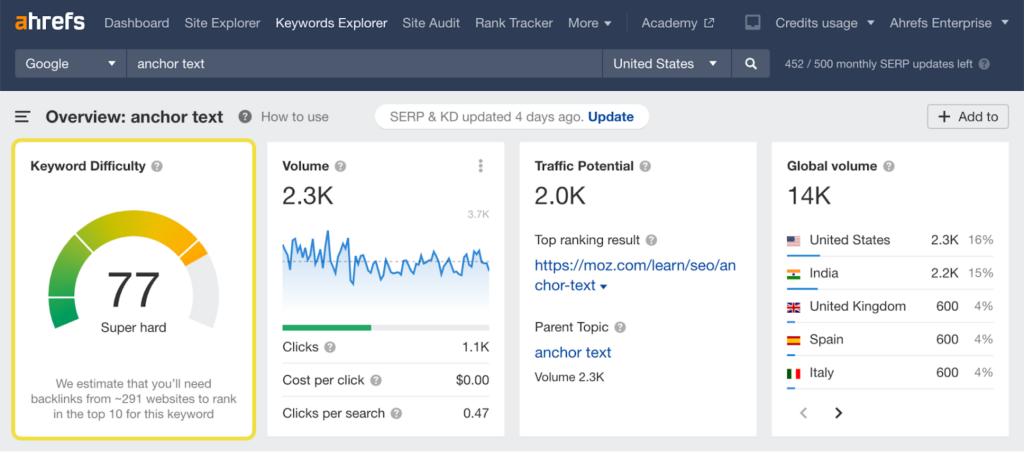
2. Adopt new white-label technology
Developing your own services involves a lot of investment in new expertise, new training, and new technology. By using white-label technology you can add new services quicker and more affordably.
White-label technology is software made by third-party companies that you can use for your own business, but you can customise it using your branding (colours and logo) and names.
This helps you make sure that everything you give to your customers looks and feels like it’s from your business. It also helps you stand out from other businesses and make your customers trust you more.
For example, if you are a marketing agency, you can help your clients digitize their businesses by using vcita’s white-label partner program. With it, your clients can get access to web-based and mobile apps that will make it easier for them to manage their marketing, customer relationships, appointments, and invoicing. The app will have your agency’s branding, so your clients will be reminded throughout the day of the value they enjoy from working with you.

The benefits are plenty, including:
Expand your marketing services to CRM management, nurture automation, and education. Build customer loyalty (and consequently lifetime) by giving them a reliable solution for managing their operations. Generate extra income by providing a monthly subscription service to that app.And all of that without going into trouble of developing your own service or tool – although it is also possible to experiment with creating your own apps from templates using a no-code app builder, at the very least for proof-of-concept purposes.
However, a white-label solution turns your agency and your client into partners, helping your clients to provide better customer experience and increase their income.
There are other white-label solutions agencies can explore to expand their services into new or neighboring areas. For example:
ActiveCampaign’s white-labeling capabilities allow agencies to manage their clients’ email marketing campaigns. Nextiva allows you to start managing your client’s customer support needs by allowing you to use their contact center platform. SE Ranking’s white-labeling feature allows agencies to brand their whole dashboard as their own and sell advanced monitoring and reporting services without having to develop proprietary tools.3. Research your competitors to see market gaps
What are your competitors doing to explore new markets and expand their offering? Evaluating your competition and neighborhood niches is a great way to come up with your own ideas.
Using keyword gap analysis is a solid new step here. Both Ahrefs and SEMrush offer a “Keyword gap” tool, allowing you to find areas where they are excelling and you are lacking.
Simply enter your domain and then provide your competitors’ domains, and the tool will identify keywords they are ranking for while your site is not. SEMrush also allows you to filter results by keyword intent, allowing you to identify their commercial-intent search query rankings. These are likely service-driven landing pages that they are generating organic leads to.
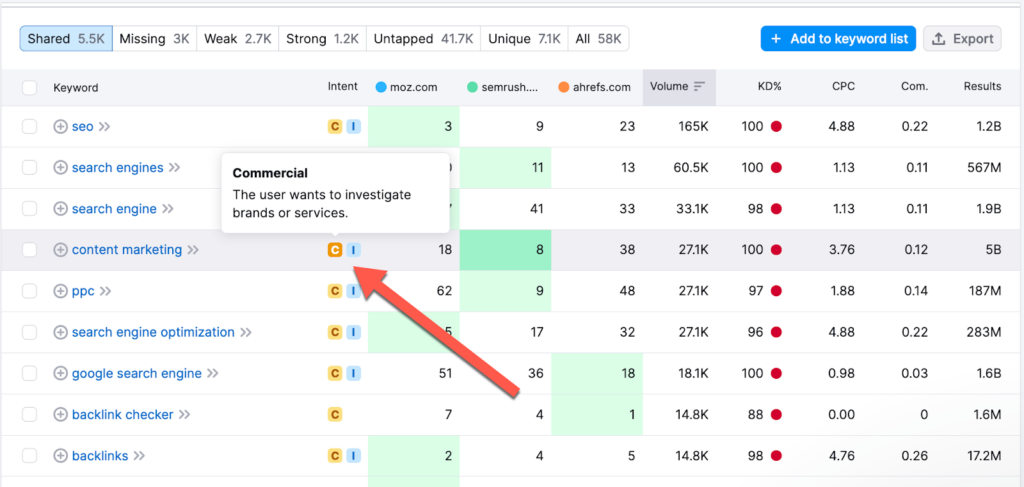
From there you can explore those landing pages and discuss whether this is one of the areas you can expand to.
You can also check their social media and links to see if they are actively promoting any side projects.
More ideas for agencies to explore new markets
Sometimes finding a lucrative strategy is not about adding new services or products. You may be able to discover new opportunities by simply experimenting with new niches and tactics, and then coming up with a way to monetize it.
Consider broadening your horizons by simply doing more than you currently are (I know it sounds easier than it really is):
Allow your most successful and productive team members to start a fun side project outside of your immediate niche. Using your internal team to discover new opportunities is a good idea because it will also allow you to identify internal talent. For example, they can start a podcast, a newsletter or a mini site. Explore more partnership and marketing opportunities. In most cases, opportunities come your way when you simply get out there and start networking more. Join new communities, get interviewed, meet new people, and exchange ideas. This will ultimately inspire you to start something new and explore more areas to branch out to. Track trends. These can be within your niche or outside of it. What is everyone talking about? Is it new technology? Can it help you adjust your current offering or expand it? Marketing trends are ever-changing and may be hard to keep up with but this is what will keep your company always moving. Innovation is never easy, but it will help your agency to stay afloat!Conclusion
It is a good idea for agencies to explore new markets and add new services for a few important reasons.
Firstly, as niches evolve, they often have different needs and demands. Being able to adapt to these changes is key to being successful. A stale business is doomed to failure.
Secondly, by expanding their offering, agencies can expand their customer base and increase their revenue.
Lastly, adding new services can also help agencies solidify their existing client relationships. By offering more services, they can become a one-stop shop for their clients, which can increase client satisfaction and loyalty.
Overall, exploring new markets and adding new services can help agencies grow, adapt to changes in their industry, and ultimately be more successful.
Published at
12:3320 April 2023

 UsenB
UsenB 










![How Many Visitors Should Your Website Get? [Data from 400+ Web Traffic Analysts]](https://blog.hubspot.com/hubfs/Copy%20of%20Untitled-Sep-30-2021-06-33-43-49-PM.png#keepProtocol)





